What Is The Rarest Animal On Earth
Species effectually the planet are going extinct every mean solar day. Habitat loss, poaching, climate change and other factors are to arraign, leading to many animals becoming extremely rare in the wild. From big cats to ancient turtles, these species are now few and far between in nature.
These threatened animals are included on the International Wedlock for Conservation (IUCN) Red Listing of Threatened Species, a comprehensive inventory of the global conservation condition of species. Hither are some of the rarest animals in the world, according to the IUCN Ruddy List and the Globe Wide Fund for Nature.
Amur leopard
Amur leopards, also known equally Far East leopards, live in the temperate forests of Russian federation and Mainland china. With fewer than 100 left in the wild, information technology's extremely rare to grab a glimpse of these elusive cats. Poaching, habitat loss due to logging and the illegal wild fauna trade are to arraign for the decline of Amur leopards, which are hunted for their fur.
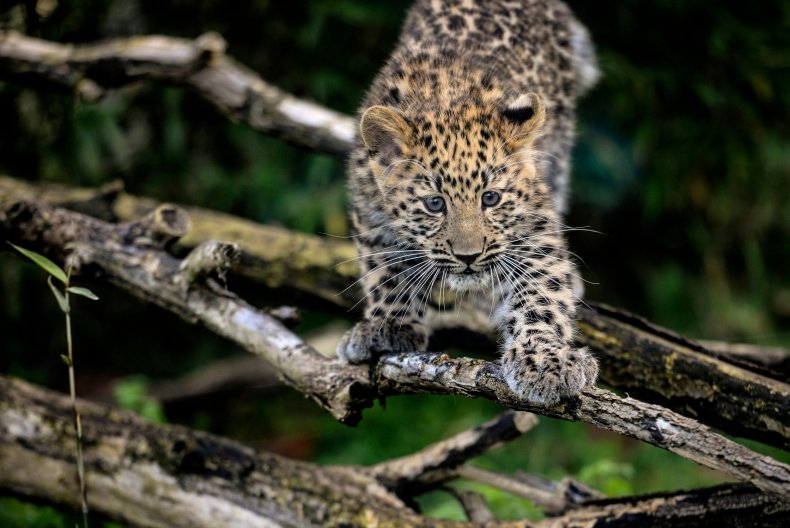
Blackness rhinoceros
With effectually five,600 blackness rhinos left in the wild, these creatures are critically endangered. However, this is around double the number than existed xx years ago, thank you to conservation efforts beyond Africa. Wildlife offense, namely poaching and the trafficking of rhino horns, continues to plague the species and threaten its recovery.
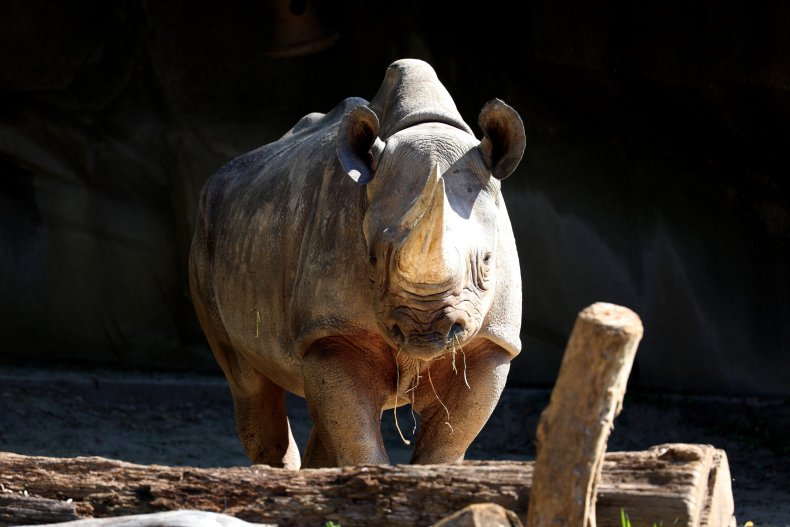
Bornean orangutan
Bornean orangutan populations have declined by more than than 50 percent over the by 60 years and the species' habitat has also been reduced by half in the concluding two decades. Found simply on the isle of Borneo, there are merely around 104,700 of these orangutans left in the wild.
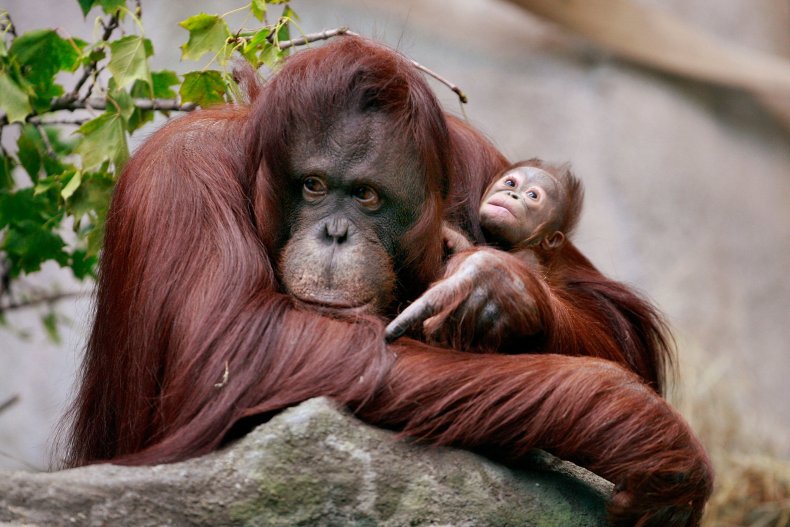
Cantankerous River gorilla
Found in the Congo Basin, this subspecies of the Western gorilla lives in an surface area populated by people, which has led to habitat loss. Forests have been cleared for timber and to create fields for agriculture, leading to a precipitous decline in Cross River gorillas. There are now around 200 to 300 left.
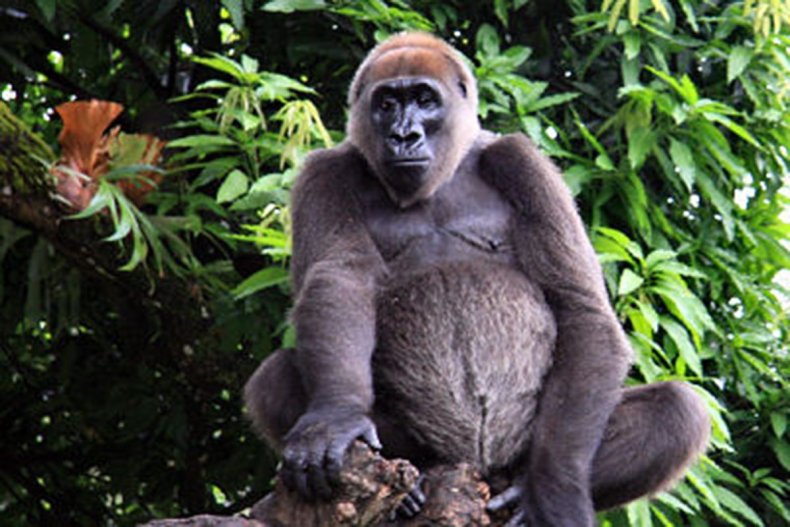
Eastern Lowland gorilla
The Eastern Lowland gorilla, also known as Grauer'south gorilla, is the largest of the four gorilla subspecies. There were most 17,000 Eastern Lowland gorillas in the wild in the 1990s, merely according to the WWF, the population has declined by more than half since and so. Violence in the region has made it hard to track the population and led to further habitat devastation.
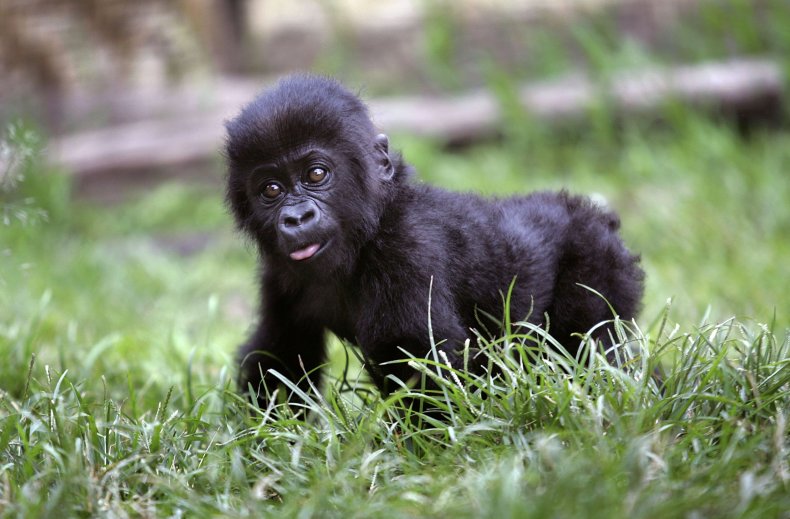
Hawksbill turtle
Hawksbills are establish throughout the world's tropical oceans, predominantly in coral reefs. However, these animals are critically endangered and you're unlikely to spot one in the wild. Many become endangered in fishing equipment and despite laws protecting Hawksbill turtles, they continue to be hunted for their shells and meat.
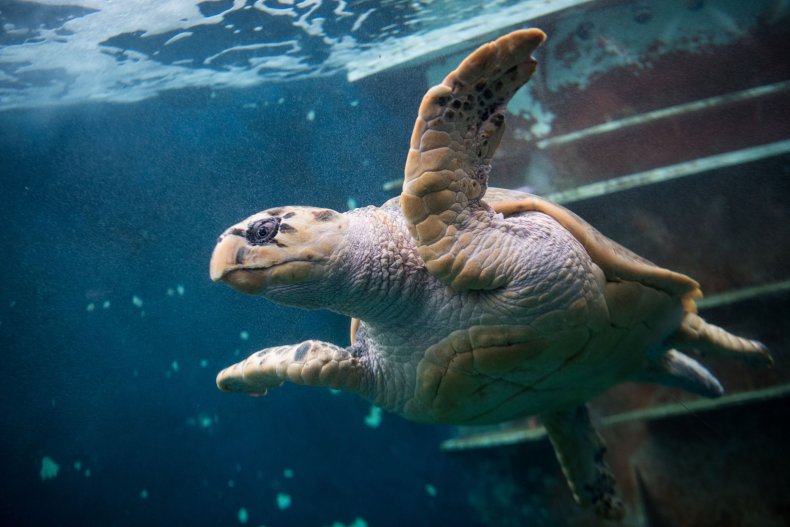
Javan rhino
At that place are only around 60 Javan rhinos left in the world and they are but found in Ujung Kulon National Park in Coffee, Republic of indonesia. Although they in one case lived throughout northeast India and Southeast Asia, poaching, affliction and habitat destruction has decimated the population. According to the WWF, low genetic diversity and inbreeding could brand it difficult for the long-term survival of the species.
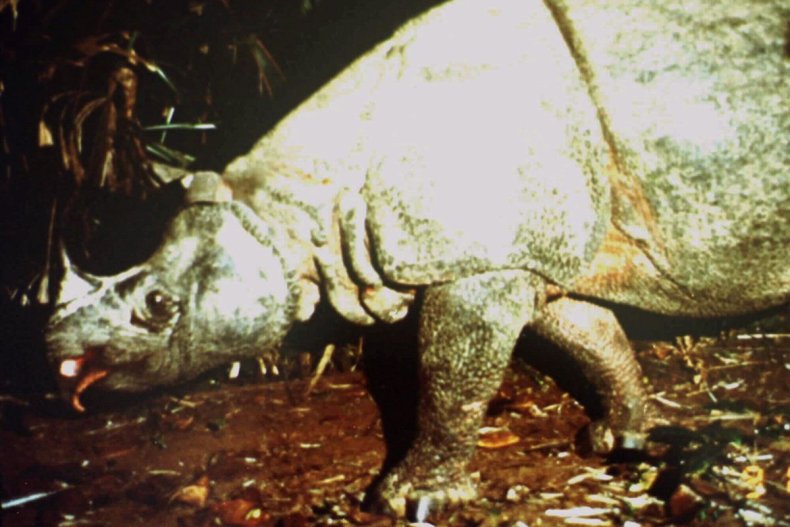
Saola
Sometimes referred to equally the Asian unicorn, not much is known nigh the saola. These mammals are critically endangered and scientists accept but documented them in the wild iv times. These tiny, forest-dwelling bovines were kickoff spotted in the early on 1990s.
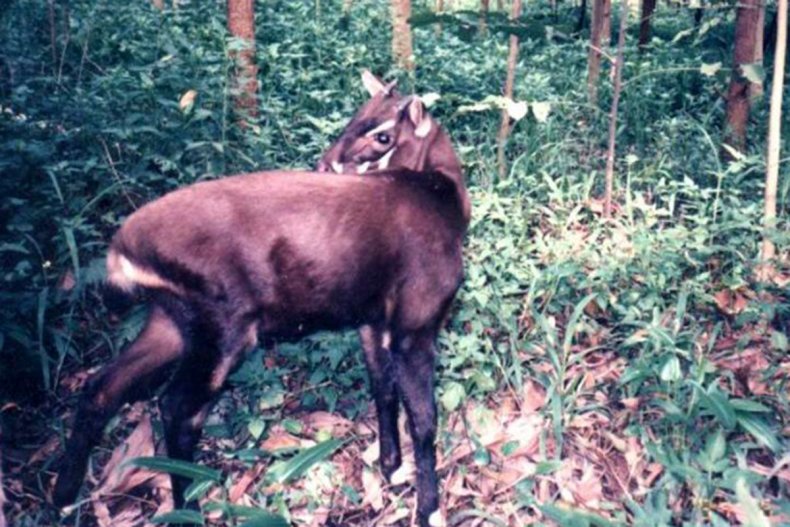
Sumatran elephant
Found in Borneo and Sumatra, in that location are around ii,400 to ii,800 Sumatran elephants left in the wild. In 2012, the Sumatran elephant was classified as critically endangered considering half of its population has been lost in one generation, mostly as a result of habitat loss and conflict with humans.
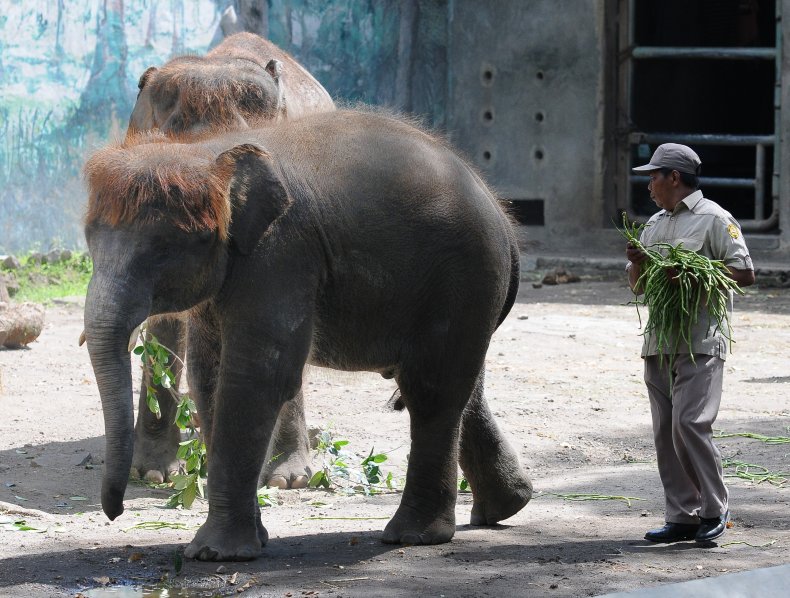
Sumatran orangutan
The Sumatran orangutan used to be institute over the island of Sumatra and further due south into Java. Now, however, the species but live in the north of the island, with a majority in the provinces of North Sumatra and Aceh. Habitat loss, as a consequence of forest fires or deforestation in order to make room for palm oil plantations, are mostly to arraign.
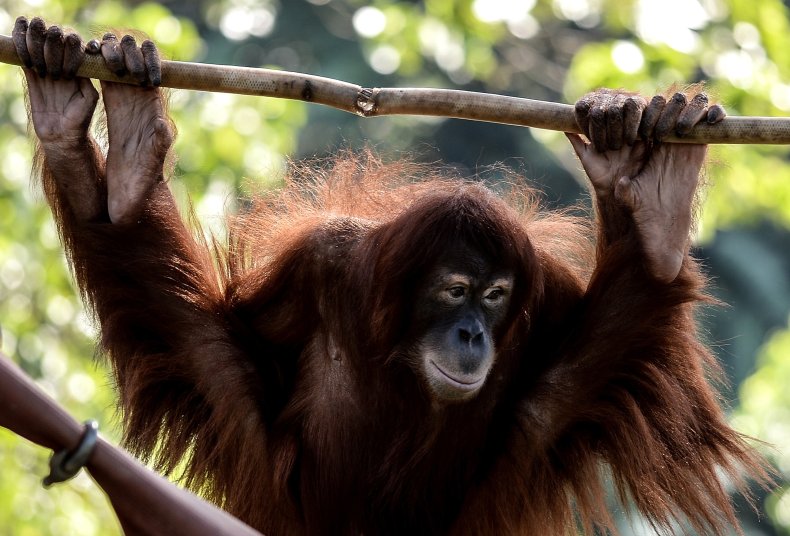
Sumatran rhino
Similar Javan rhinos, Sumatran rhinos are critically endangered with simply effectually 80 left in the wild. Poaching and the illegal wild fauna trade have led to the turn down in Javan rhinos, which are hunted for their horns. The horns are often sold for utilise in traditional medicine.
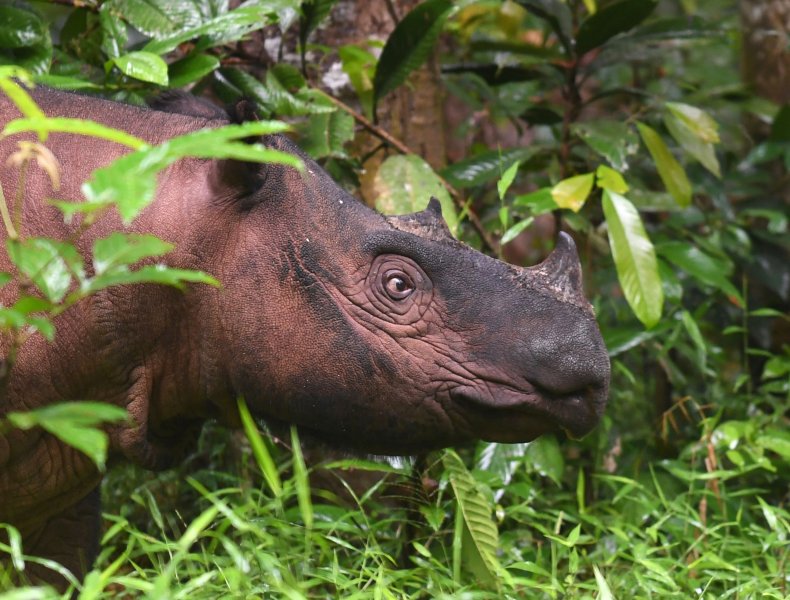
Sunda tiger
Sunda tigers are recognisable by the thick black stripes on their orange coats. At that place are now fewer than 400 left in the wild and they are simply constitute in patches of wood on the island of Sumatra. Deforestation and poaching has led to a serious decline in numbers of Sunda tigers, despite increased conservation efforts.
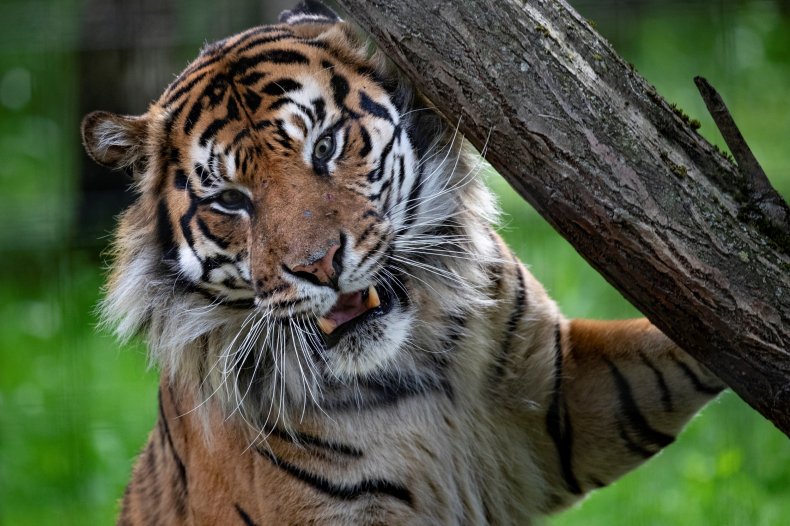
Vaquita
The vaquita is the world's rarest known marine mammal, with simply effectually ten left in the wild. First discovered in 1958, vaquita are often defenseless in nets used by illegal fishing operations in marine protected areas within Mexico's Gulf of California.
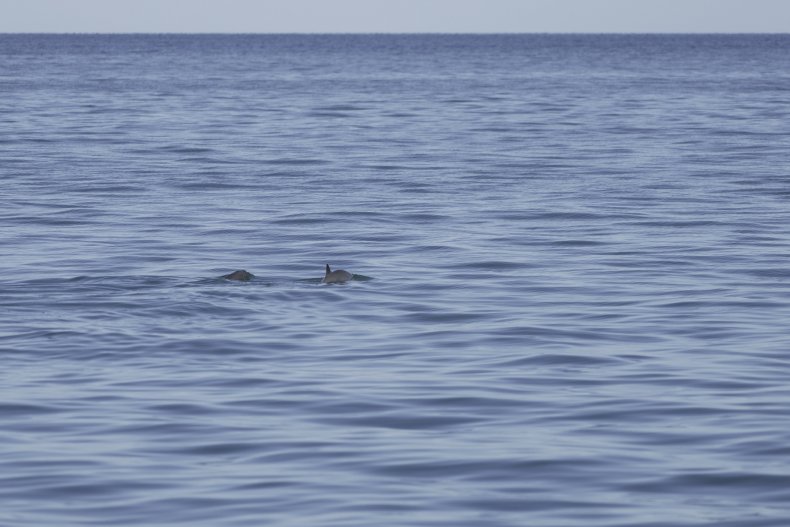
Western Lowland gorilla
Western Lowland gorillas can be found in Cameroon, the Central African Republic, the Autonomous Democracy of Congo and Equatorial Republic of guinea also as in large areas in Gabon and the Commonwealth of Congo. Poaching and disease had led to a significant decline in numbers. Some scientists estimate that Ebola has killed about ane tertiary of the wild gorilla population, mostly Western Lowland gorillas.
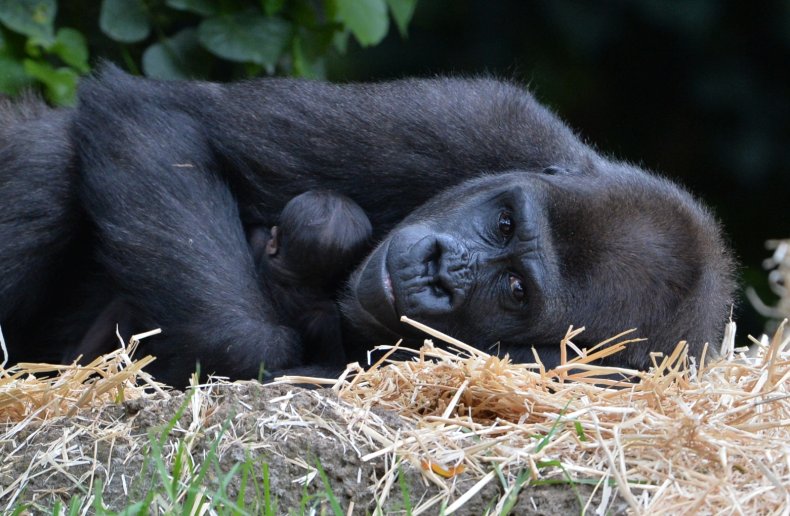
Yangtze Finless porpoise
Only found in the Yangtze River in Asia, at that place are but effectually thou to one,800 Yangtze Finless porpoises left. Overfishing is the main factor that contributes to the subtract in finless porpoises' food supply, simply pollution and send move are factors too. These relatives of whales and dolphins are known for their cute smiles
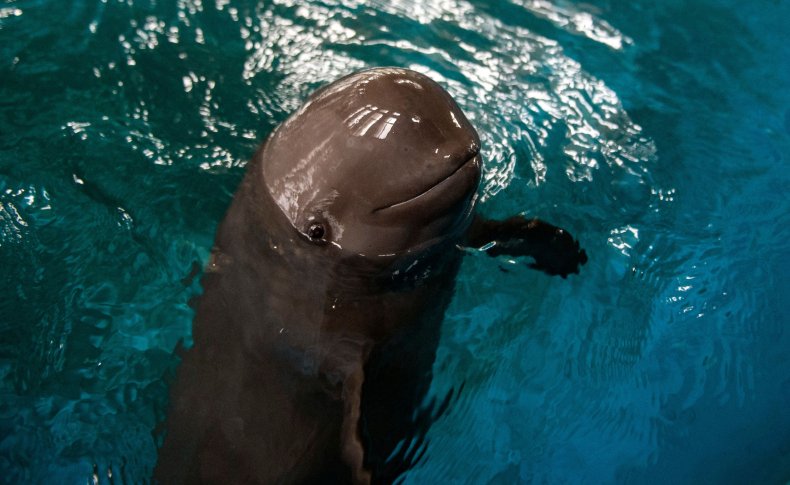
Source: https://www.newsweek.com/15-rarest-animals-planet-1598542
Posted by: duryeapecter.blogspot.com

0 Response to "What Is The Rarest Animal On Earth"
Post a Comment